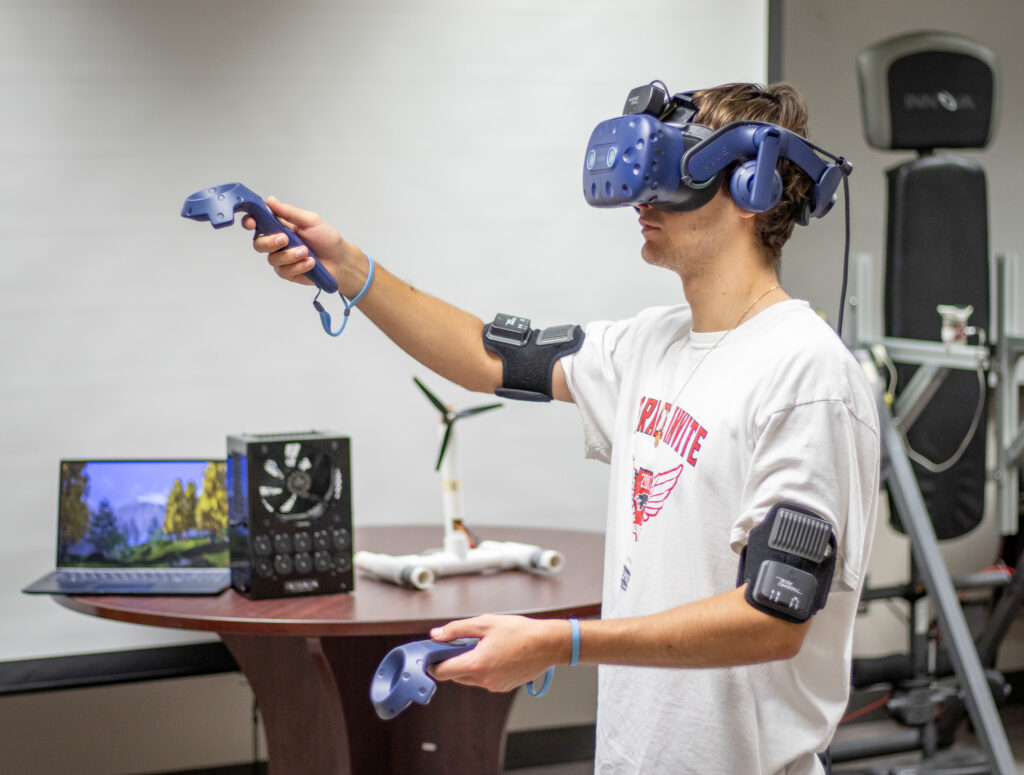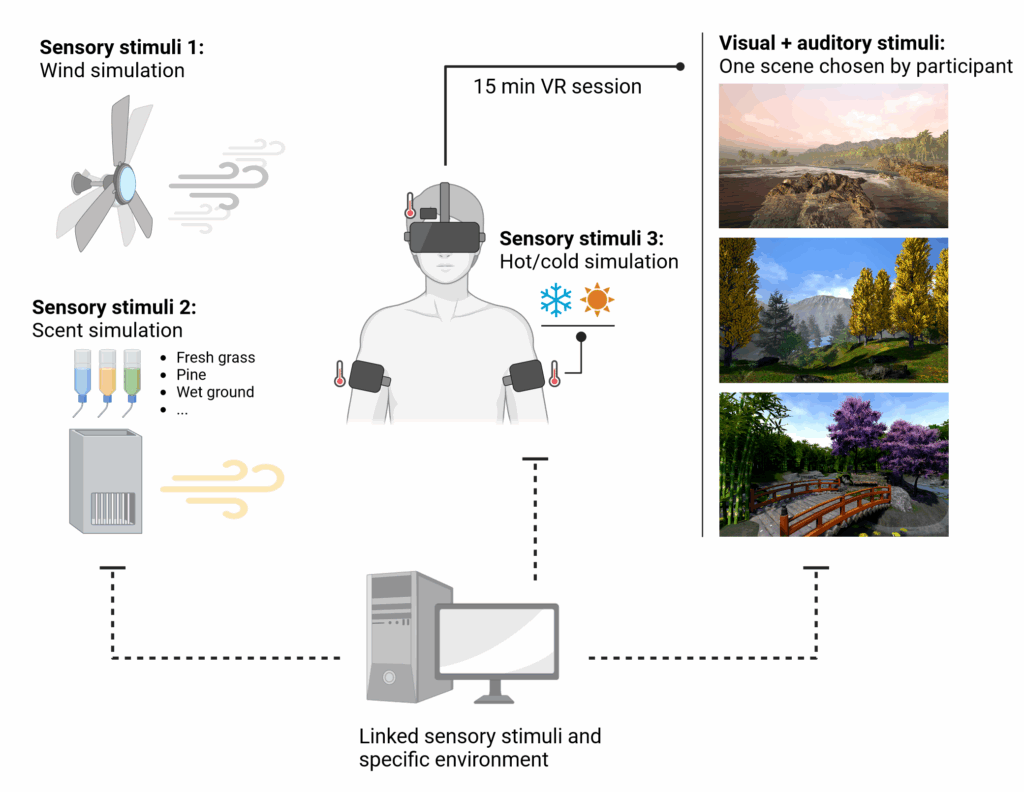 Future long duration exploration missions will require astronauts to spend prolonged periods in isolated and confined environments. Combined with sensory deprivation, loss of social connection, and a demanding workload, these factors can adversely affect an astronaut’s mood and stress levels. This places astronauts at an increased risk of developing adverse behavioral health conditions, which can cause performance decrements and jeopardize mission success. Current countermeasures used on the ISS will become increasingly difficult to use as missions venture further from Earth and begin to encounter significant communication delays. Virtual reality (VR) technology is a promising countermeasure, and continual advancements in VR technology have made it more robust and portable.
Future long duration exploration missions will require astronauts to spend prolonged periods in isolated and confined environments. Combined with sensory deprivation, loss of social connection, and a demanding workload, these factors can adversely affect an astronaut’s mood and stress levels. This places astronauts at an increased risk of developing adverse behavioral health conditions, which can cause performance decrements and jeopardize mission success. Current countermeasures used on the ISS will become increasingly difficult to use as missions venture further from Earth and begin to encounter significant communication delays. Virtual reality (VR) technology is a promising countermeasure, and continual advancements in VR technology have made it more robust and portable.Our lab is currently investigating the potential of VR technologies to enhance behavioral health and performance. Natural environments provide many psychological, physiologic, and cognitive benefits, and incorporating many sensory modalities could improve realism and enhance benefits of the virtual nature experience. We have developed nature-inspired VR environments with multiple sensory inputs: audio, visual, olfactory (smell), and haptics (wind and thermal stimuli). Uniquely, the scents, wind, and temperature vary based on the user’s location within the virtual environment. For example, the scent of wet ground by a pond or cooler temperatures in the shade. We are using questionnaires along with the NASA Cognition battery to measure the impact of our multisensory VR countermeasure on behavioral health and performance in both a laboratory and operational setting (i.e., Naval ship). This countermeasure could also provide benefits to other populations who do not have free access to nature such as assisted living residents, post-op recovery patients, and individuals with seasonal affective disorder (SAD).

